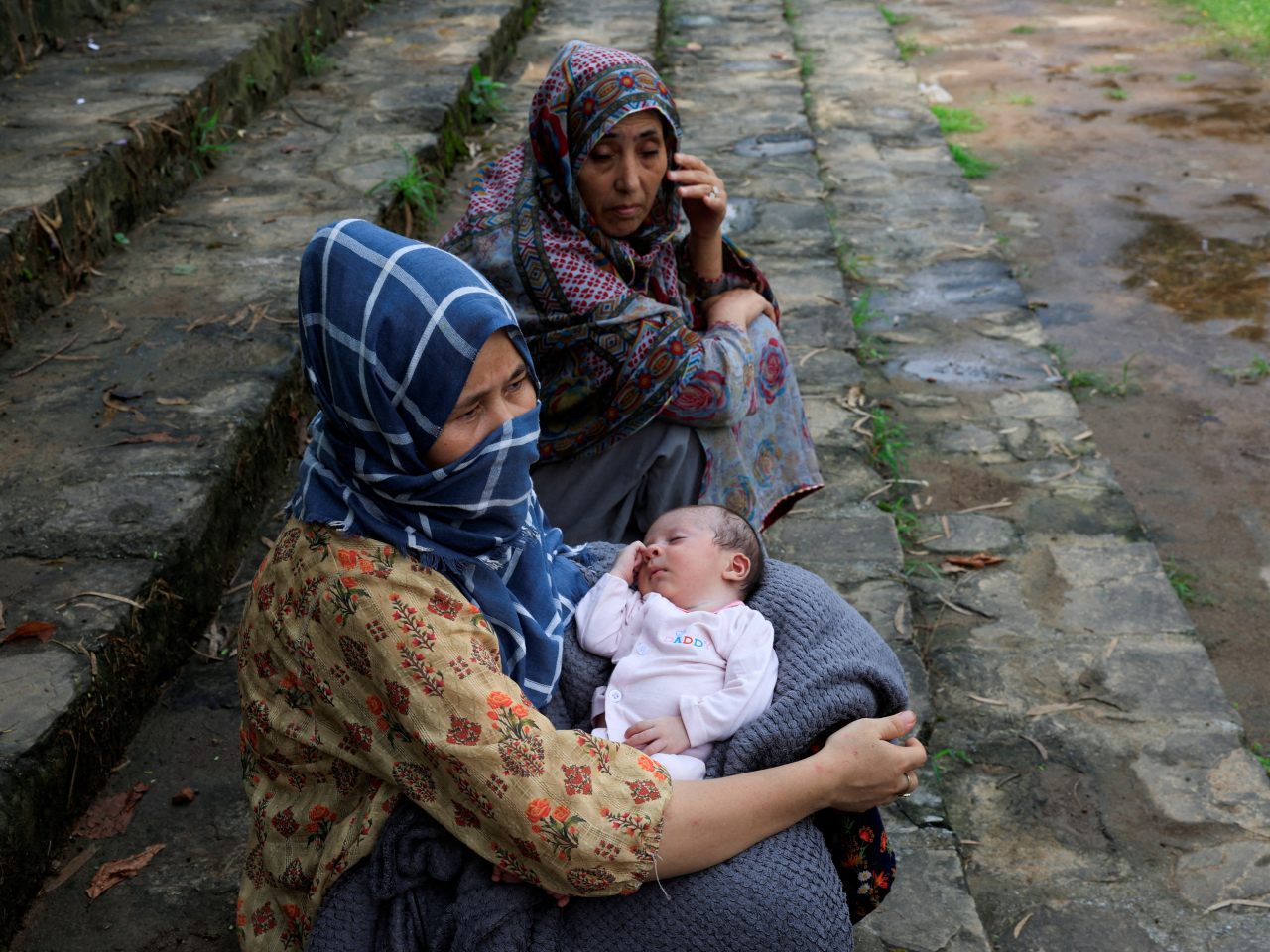Afghan refugees in a park near government offices in Islamabad said they had nowhere to go as Pakistan pressures landlords to expel documented families.
Among them is Samia, 26, from Afghanistan’s Hazara minority, a Shi’ite community long persecuted at home, who gave birth just three weeks ago.
"I came here when my baby was seven days old, and now it has been 22 days ... we have no food, and my baby was sick but there was no doctor," she said as she cuddled her son, Daniyal.
The United Nations says Pakistan has begun deporting documented Afghans before a September 1 deadline that could force more than a million to leave.
The action comes despite about 1.3 million holding refugee registration documents, while 750,000 have Afghan identity cards issued in Pakistan.
Samia now lives on the park's wet ground, among 200 families who cook, sleep and dry their belongings there after nights of rain.
What little money they have is spent on potatoes or squash, cooked on open fires to share with several people. The women use the washroom in a nearby mosque.
The refugees said police officers regularly tell them to leave or risk being taken away, but the police denied any form of harassment.
Jawad Tariq, a deputy inspector general, said refugees were only asked to leave voluntarily or move to holding centres.
Pakistan, host to millions of Afghans since the 1979 Soviet invasion, has stepped up expulsions under a 2023 crackdown, blaming Afghans for crime and militancy, charges rejected by Kabul.
Neighbouring Iran’s plan to deport more than a million more adds to a refugee return crisis aid groups call the biggest since the Taliban takeover in 2021. (Reuters)





